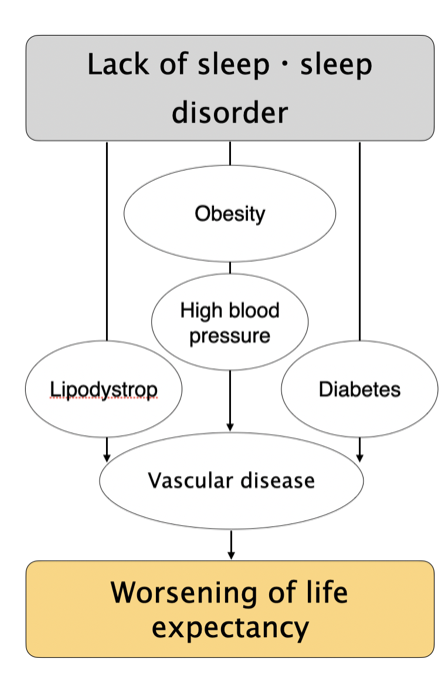Do you know that Sleep Apnea can cause a variety of complications such as high blood pressure and type 2 diabetes.?
This is because sleep and breathing are disturbed, which can affect the blood vessels, heart, brain, autonomic nervous system, and other parts of the body in a variety of ways.
In cross-sectional epidemiological studies, the frequency of diabetes complications in Sleep Apnea is 15-30%. 1.4 to 1.6 times higher risk of developing type 2 diabetes of those with Sleep Apnea.
Diabetes is a disease of persistent high blood glucose levels caused by a deficiency or impaired function of the hormone insulin. Diabetes is a chronic disease that occurs either when the pancreas does not produce enough insulin or when the body cannot effectively use the insulin it produces. Insulin is a hormone that regulates blood glucose. Type 2 diabetes stops the body from using insulin properly, which can lead to high levels of blood sugar if not treated. Insulin, which works to lower blood glucose levels, does not work well when a lack of sleep.
Patients with Sleep Apnea tend to have trouble sleeping well due to the disease and tend to be sleep deprived even if they are not aware of it. As a result, insulin function is impaired, making it difficult to lower blood glucose levels.

Type 2 diabetes is often preventable. Some diabetics have reported improved insulin response and better glycemic control after starting treatment for Sleep Apnea. Early diagnosis is important to prevent the worst effects of type 2 diabetes.
